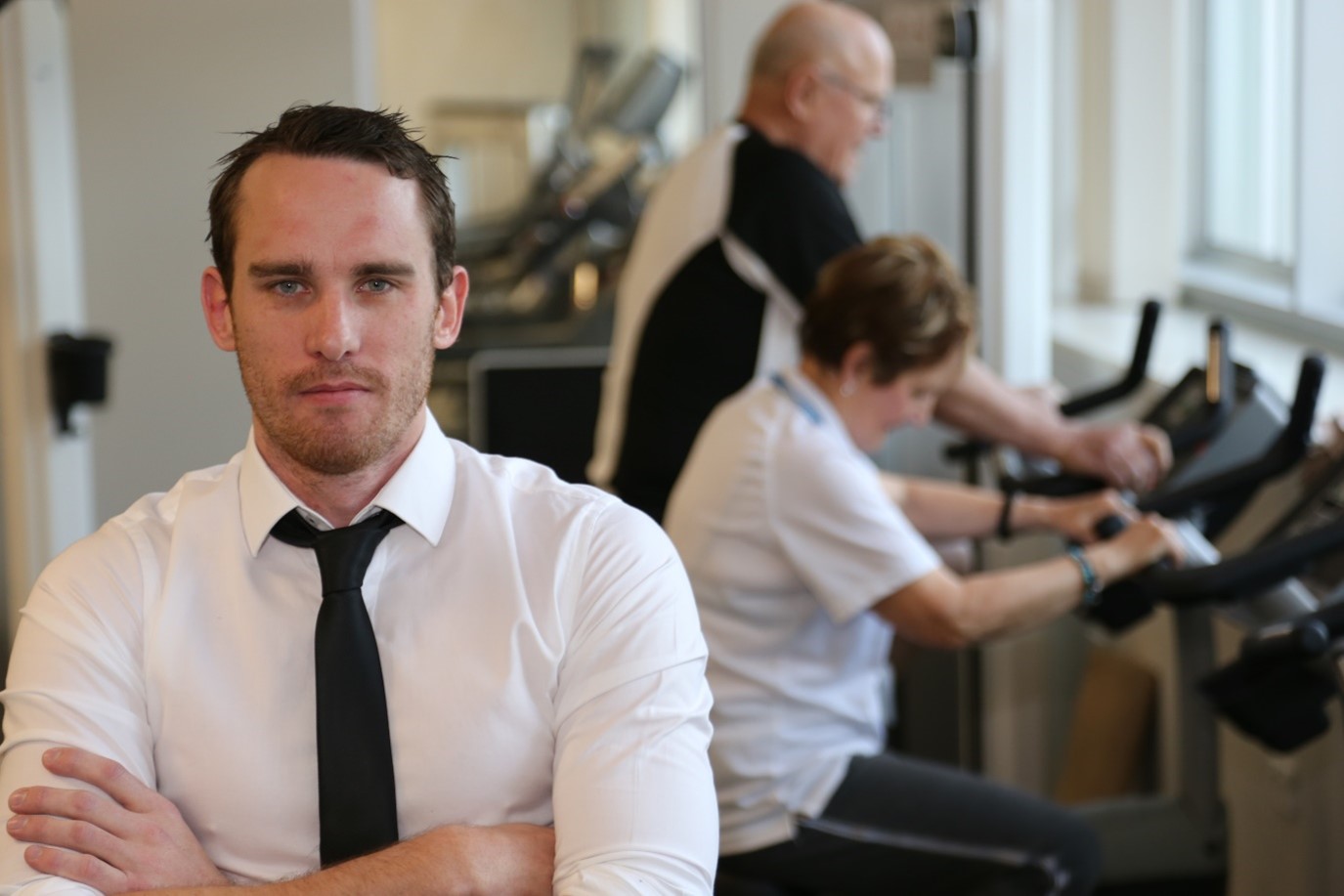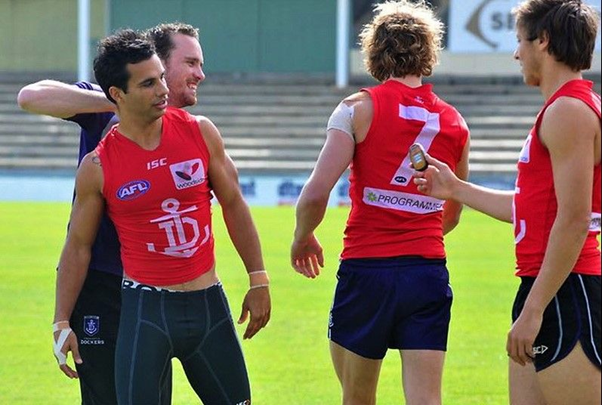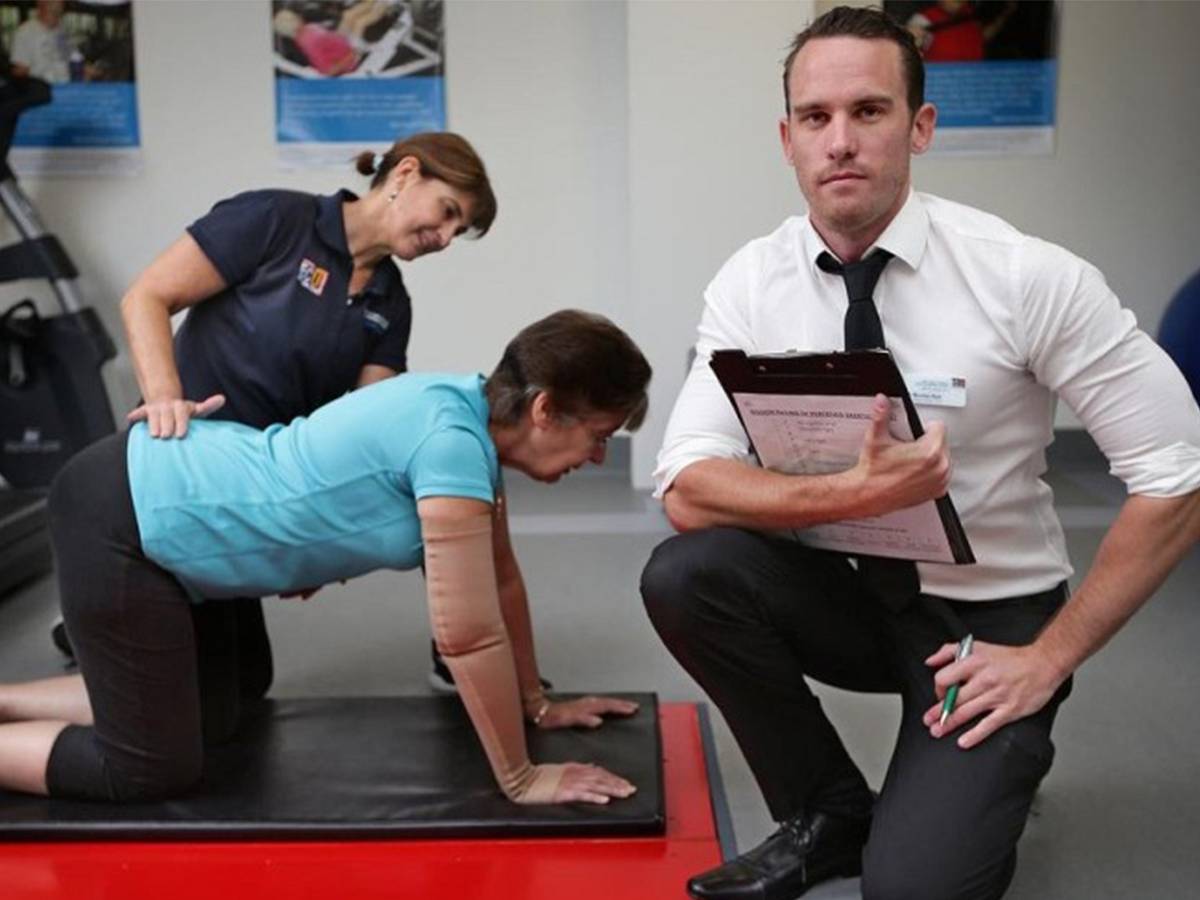
Deputy Lead of the Cancer Survivorship Program at Flinders Caring Futures Institute, Dr Nicolas Hart enjoyed a varied career as a sports scientist before following a different path. Learn more about how he applies his expertise to research and why he wants to make a difference to the lives of cancer survivors.
What has been your involvement in elite sport?
From 2011 to 2015, I was a professional sport scientist at the Fremantle Dockers (AFL) and consulted to the Western Force (rugby union) and Perth Glory (soccer) in Perth. My expertise in biomechanics led to a focus on musculoskeletal injury (screening, prevention and rehabilitation), player load management, and strength and conditioning. From this, I completed my PhD focusing on the reduction of lower-limb stress fractures, including the evaluation of muscle-bone material and structure to estimate their strength and resilience. Following my PhD, this work led to my ongoing consultancy to the West Coast Eagles, where I continue to supervise PhD students within the club’s high performance training centre. I also work with the WA Police Force, where I am supervising a postdoctoral fellow.

Describe your expertise in the field of exercise science. How does it intersect with cancer research?
After nearly a decade working directly with athletes, I wanted to apply my knowledge to a more noble pursuit and make a genuine difference to the lives of people in need.
Sadly, like most people in society, and nearly all people working in the cancer field, I have lost multiple people to cancer. My mother had a close call with melanoma, and my uncle is now battling prostate cancer. Observing first-hand the physical and psychological impact cancer treatment had on those close to me, connecting it with my knowledge of exercise as a tool to counteract those issues, I knew there was a strong field of work that needed to be conducted.
My expertise in bone biomechanics and stress fractures, together with my knowledge of how muscle and bone interact optimally in elite athletes, allowed me to apply my unique knowledge to people with advanced cancer which had spread to bone – commonly known as bone metastases. These people are often excluded from exercise due to safety fears, and through my work, these people can now receive the benefits of exercise medicine.
What are you most proud of?
Early in my career, I acquired external research funding from the National Breast Cancer Foundation, Movember Foundation, Exercise and Sport Science Australia, and Cancer Council Western Australia to lead world-first trials in humans targeting bone metastases in people with advanced prostate and breast cancer. This was achieved through three clinical trials valued at over $10 million, one which is international.
This work led to the development of the world’s first clinical exercise recommendations for people with bone metastases, to give health care providers and exercise professionals an initial guiding framework to facilitate access to exercise that is safe and effective for patients. These recommendations were published last month.
In mid-2020, I became the Deputy Lead of Prof Raymond Chan’s Cancer Survivorship Program (initially at Queensland University of Technology). As a Senior Research Fellow, my work in people with advanced and metastatic cancer was recognised with honours including my instalment as the inaugural Chair of Exercise Oncology for the Multinational Association of Supportive Care in Cancer (MASCC) and inaugural MASCC Survivorship Fellow to develop international principles of survivorship care for people with advanced and metastatic cancer. I am also one of two Australians currently involved in developing the World Health Organisation’s “Package of Interventions for Rehabilitation” in Cancer that will be directed to low- and middle-income countries – a major global health initiative that is my proudest achievement to date.
What has been the most fulfilling aspect of your involvement with Exercise and Sports Science Australia?
I have been involved with ESSA for over 15 years, including development and revisions of its scopes of practice for its accredited professions. Other than being named Exercise Scientist of the Year in 2014, the organisation also provided my first clinical exercise and cancer research funding, which in many ways, launched my career in exercise oncology.
I am passionate about exercise medicine and deeply dedicated to the ESSA mission. Hence, my ability to contribute to the integrity of exercise science across various fields and help promote ESSA -accredited professions is truly valuable.

What was your reaction when you were named a Fellow of ESSA?
I was extremely humbled and deeply honoured to be recognised as a Fellow of ESSA. I was able to achieve this alongside my colleague and friend Professor Belinda Beck, who is also a bone and exercise researcher focused on strength training and osteoporosis and whose work I admire.
ESSA has approximately 50 Fellows in its 30-year existence. It is extremely rewarding to be among such esteemed company, including my mentor for over 15 years, Prof Robert Newton.
What sparked your interest in the Caring Futures Institute Cancer Survivorship Program? Why is it so important?
The decision to relocate to Flinders and launch the Cancer Survivorship Program at the Caring Futures Institute was simple. Flinders University has a leading reputation for research excellence in health and medicine, with brilliant research support and ambitions from its leadership, right through to its academics and professional staff.
Beyond this, the Caring Futures Institute’s aims are consistent with improving care outcomes for people with cancer at all stages of life, and all phases of the disease. Having our Cancer Survivorship Program here creates an excellent synergy of ambition and focus, to achieve meaningful differences to people with cancer worldwide.
What do you hope to achieve in your new role?
Ultimately, I aspire to improve care outcomes for people with advanced and metastatic cancer by addressing their physical and psychosocial needs through accessible programs involving exercise, nutrition, psychosocial support, and toxicity management. I also hope to focus on ways to improve cancer outcomes through effective non-pharmacological interventions that target disease biology (especially in bone), and that influence disease progression and overall survival. Lastly, I hope to change the way in which people with advanced and metastatic cancers receive care, by improving the models of care that support them, including the expansion of shared-care arrangements (between specialists and the primary care sector) to better meet their needs, and the needs of their informal caregivers.
What do you like to do in your spare time?
I enjoy spending time with my puppy, Baxter, a two-year-old mixed breed rescue who has travelled with me from Perth to Brisbane and now Adelaide. Otherwise, I practice what I preach – exercising often and I’m always at the gym and beach when the weather permits.


